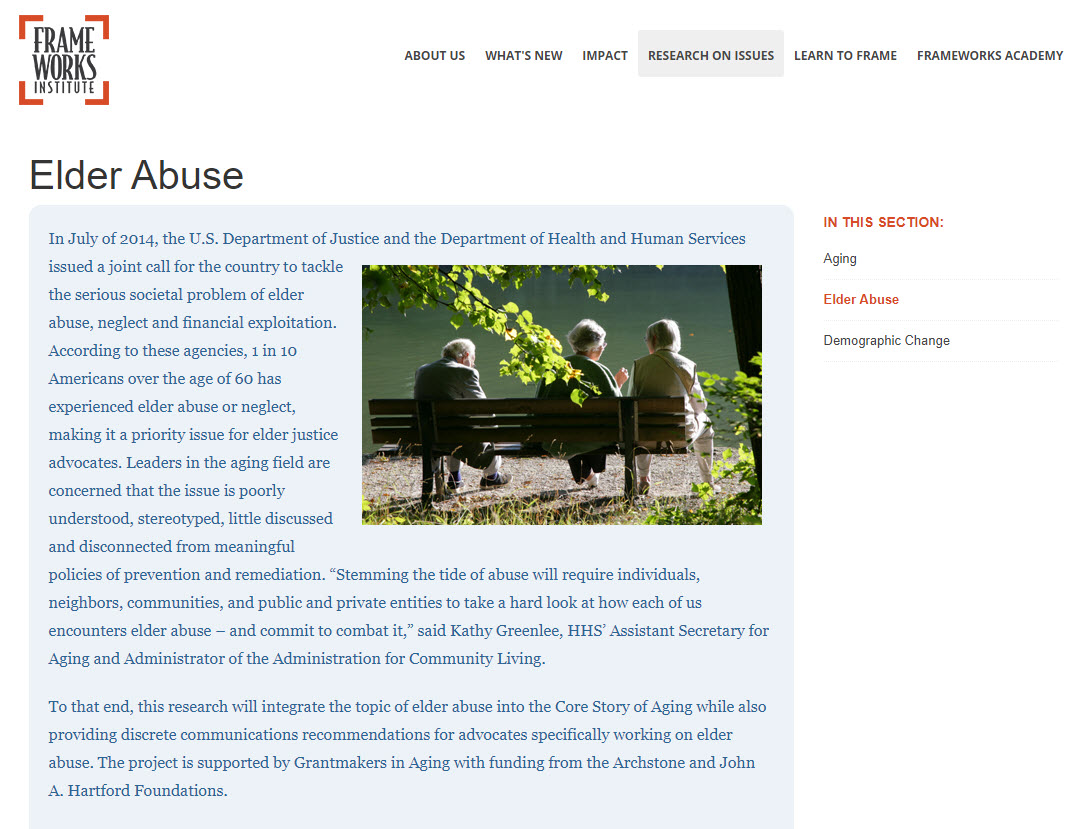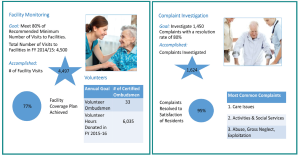Elder and dependent adult financial abuse is on the rise, and within the community resources and coordination are inadequate to address the issue. Adding to that difficulty, the possible indicators of elder and dependent adult financial abuse are numerous – it isn’t possible to provide an exhaustive list of financial abuse indicators – and although in some situations the occurrence of abuse is obvious many times whether actual abuse is occurring, or whether you should suspect that abuse is occurring, really depends upon the facts and circumstances at that time, and how you interpret those facts and circumstances. A legitimate explanation for the occurrence might also exist, or it is possible that the elder or dependent adult simply is making what might be considered to be an unwise decision that isn’t being caused by abuse.
All of the above having been said, it is recognized that there is a community-wide need for the collaboration of people and resources, and a visible discussion about elder and dependent adult financial abuse, how to spot it and what to do when it is suspected. The below list of possible financial abuse indicators is intended to be for helpful discussion purposes, recognizing that each situation must be separately evaluated.
As an overall initial indicator, basically, possible elder or dependent adult financial abuse typically becomes apparent from a financial, asset or property situation that appears to be unnatural or out of character for that elder or dependent adult, or for the typical similar person in society. For the purpose of this discussion, under California law a dependent adult is someone age 18 or older and an elder is someone age 65 or older.
So . . . the following are some of the possible indicators or situations where there is greater opportunity for abuse, including undue influence, to occur, but I am sure that you can also come up with additional indicators.
√ Increased or unusual banking activity.
√ An unusually, or out of the ordinary, large transaction.
√ The purchase of an unusual item or service.
√ Money being paid to or for the benefit of someone out of the ordinary. The person could be a stranger to the elder or dependent adult, a caregiver, a housekeeper, a neighbor, a friend, a gardener, or even a family member.
√ A change in account title or authority.
√ Someone improperly using his or her authority over the elder or dependent adult’s account. Possible a trustee, attorney in fact, co-account holder, family member, “friend” or other person.
√ Unusual credit card transactions or balances.
√ A change in deed or real property or account title or ownership.
√ Unusual ATM activity.
√ Telemarketing and mail fraud; fake prizes; fake accidents; unnecessary purchases or home improvements; getting a windfall upon the payment of money or by providing information.
√ Risky, unnecessary or unusual investments, insurance, warranties or annuities.
√ Unusual people accompanying the elder or dependent adult; new or unusual acquaintances; new “friends,” boyfriends or girlfriends.
√ The elder or dependent adult not speaking for himself, or herself; or some other person directing the elder or dependent adult, the situation or the proposed transaction.
√ The elder or dependent adult acting in a secretive or evasive manner; or perhaps in an overly defensive or hostile manner in response to questions or even in response to typical conversations.
√ The elder or dependent adult being forgetful, disorganized, disoriented, confused, or unaware of his or her surroundings or common events.
√ The elder or dependent adult acting paranoid or fearful about the bank or investment or financial institution, or about his or her accounts.
√ A change in the appearance, actions or demeanor of the elder or dependent adult; social withdrawal; unkempt; or health problems, including what is referred to as self-abuse.
√ The elder or dependent adult being concerned about who will help or assist him or her, or take care of him or her.
√ Expressions of concern, pressure, worry or fear.
√ Excessive payment for a product or subscription, or for services; or payment for an unnecessary product or subscription, or for services.
√ Excessive or unnecessary borrowing by the elder or dependent adult, or someone on his or her behalf.
√ The elder or dependent adult wanting to avoid conversation.
√ Unusual or unnatural will, trust, power of attorney, deed, mortgage or account terms or documents; or unusual or unnatural changes in the terms or conditions of those documents; or the unusual or unnatural selection or nomination of the person to exercise authority in or over those documents.
√ Documents, checks, payments, etc., missing, misplaced or stolen.
√ The elder or dependent adult being evicted, or loss of utilities.
√ The elder or dependent adult becoming isolated from others, either because of other people causing that isolation, or because of the elder or dependent adult’s lack of interest or motivation.
√ Forged, missing, or strange-looking signatures.
√ Changes in financial institution.
√ Changes in account, IRA, or insurance beneficiaries.
√ Unpaid bills.
√ The sudden appearance, assistance or interest of strangers, friends or relatives.
√ New people helping the elder or dependent adult around the house, or with the yard; home improvements.
√ Associating with much younger people.
√ Reluctance to discuss financial matters.
√ The elder or dependent adult’s increasing tiredness, withdrawal or depression.
√ The sudden or unexplained transfer of assets.
* * * * *
Dave Tate, Esq. (San Francisco / California)


